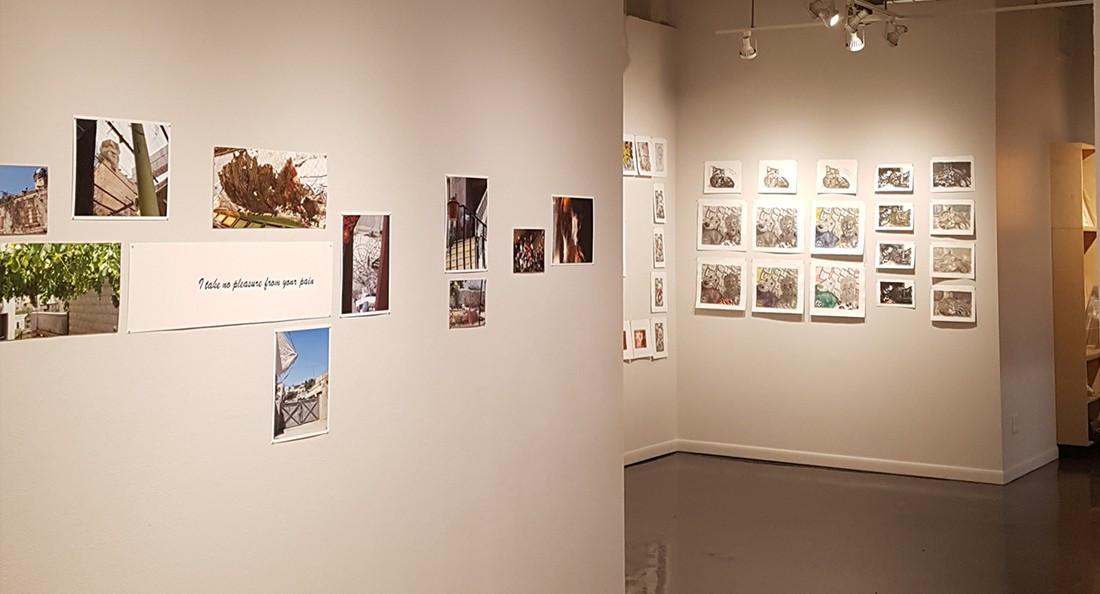Building a level table for printmaking
Making our Mark program supports artists with disabilities
Just as there's no one-size-fits-all approach to making art, there's no specific path that all artists may follow to develop their work and career. But an innovative program through Martha Street Studio offers an individually tailored approach to supporting artists
with disabilities.
This is the third time Martha Street Studio, in partnership with Arts AccessAbility Network Manitoba, has run Making Our Mark. The program’s focus has shifted slightly since the first round in 2013.
“(T)here was a lot of focus from the arts accessibility side and our side of talking about Disability Arts, as a theme, a subject, a movement,” Kristin Nelson, executive director of Martha Street Studio, says. “So I think that over time, we've definitely obviously learned that the artists just want to be artists.”
“I think there's been more of a focus on just figuring out what the individual artist wants to do. And their work – whether it be political or not political – it’s about making the work, and that's the most important thing,” Nelson says.
The Making Our Mark program offers printmaking studio access and professional development over a period of 12 to 18 months.
The program's professional development aspect is tailored to goals set by each individual artist, and changes made in studio to ensure accessibility are made as needed, Nelson says. New chairs or stools may be purchased, or workstations adapted to be compatible with wheelchairs.
There are also benefits to being part of the program that complement these tangible supports.
“Because of the nature of our studio, you might be sitting at this table with a professional artist that is solely doing their art practice, or you might be sitting with a youth who's 16, who's taking the youth outreach program, or staff. So that kind of level of engagement is a support that is not often available to artists specifically with physical disabilities who can't enter certain spaces,” Nelson says.
“So (we offer) the support to be part of the art community itself, and just to have that level table for discussion.”
Artists’ participation culminates in a group exhibition, Making Our Mark III: Interface, which is showing at Martha Street Studio through Dec. 1.
Andrea von Wichert, who is part of the program and current exhibition, says that having conversations about disability created space for her to focus on the work.
The program supported von Wichert “by addressing that there are barriers in the first place, and being frank about them, as opposed to being (in) a situation where you feel always the need to hide or not disclose what may be going on in your life ... there was an openness about it which made it normalized,” she says.
The program also offered flexibility in its approach to time, which von Wichert says was a welcome change from the expectations of consistent wellness that exist in other spaces. When she had to take some time away, they worked with her to ensure she didn’t miss out.
“In the workplace especially, I worked in an artistic field, that you always were constantly having to hide where you were at because you were afraid of losing work,” von Wichert says.
“The fact that sometimes life can become a struggle wasn't something that was held against me (in the program), and it wasn't something that I felt I needed to hide at all costs in order to participate.”
The work von Wichert developed through Making our Mark explores themes of abjection, and the “pressure to perform happiness,” she says. Her prints are based on photos - often selfies - taken at times of emotional distress.
Published in Volume 73, Number 9 of The Uniter (November 8, 2018)







